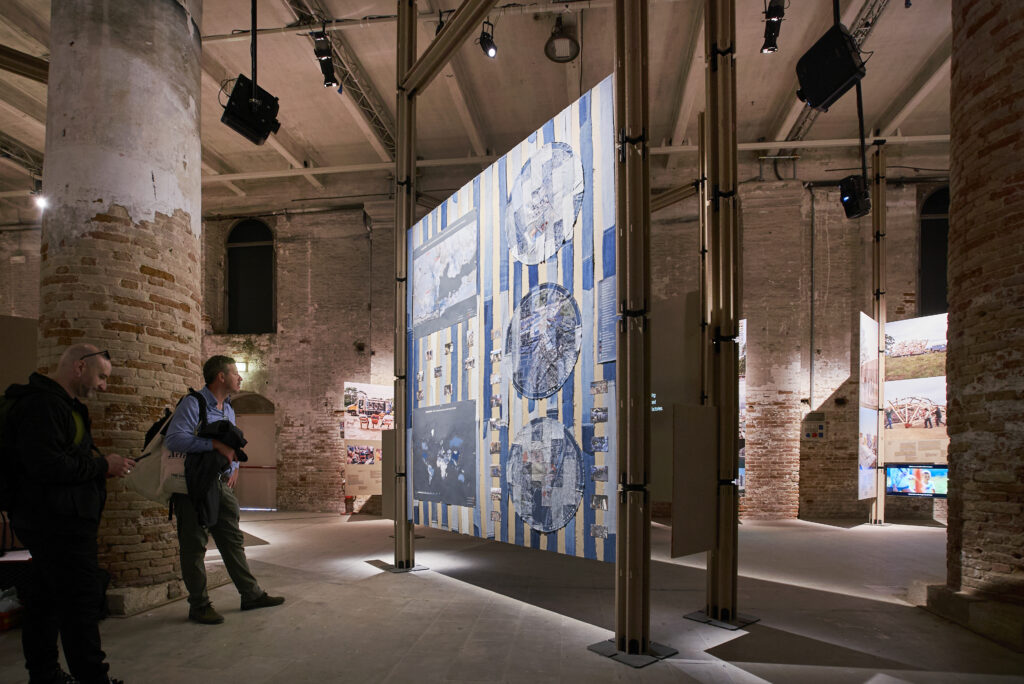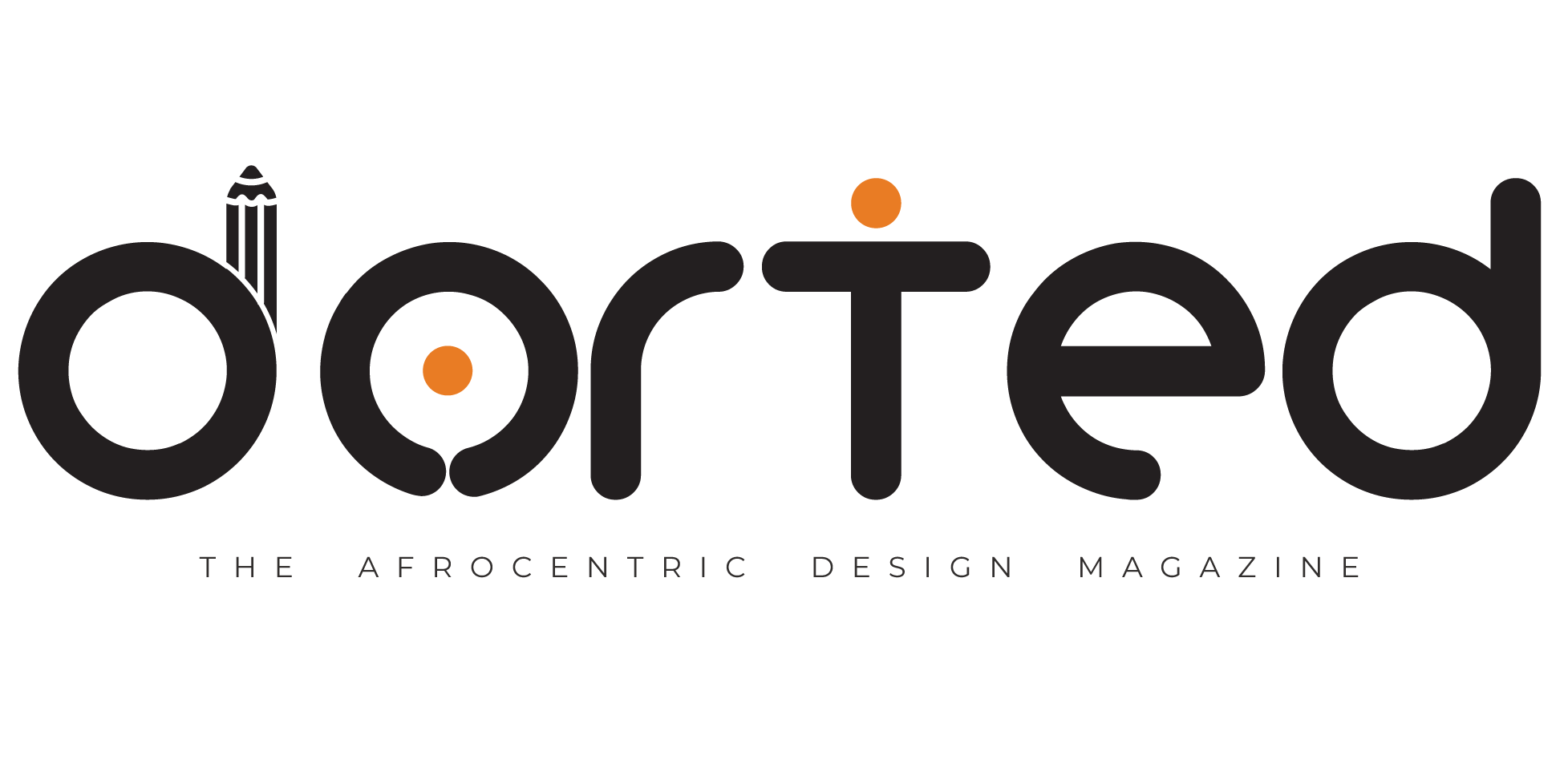
Nigerian architect Tosin Oshinowo has achieved international recognition at the Venice Architecture Biennale 2025. Her groundbreaking research project, “Alternative Urbanism: The Self-Organized Markets of Lagos,” received a Special Mention award from the International Jury on 10th May 2025. The recognition marks a significant moment for African architecture on the global stage, highlighting the innovative approaches to circularity and waste recycling embedded within Lagos’ informal market systems.
“This award is for the Global South,” declared Oshinowo during her acceptance speech at Ca’ Giustinian, the headquarters of La Biennale di Venezia. The project offers a compelling glimpse into markets that process waste from industrialized economies, transforming what many consider refuse into valuable resources through adaptive reuse strategies. The documentation presents a promising initiative for further research and knowledge production about markets in Africa, positioning these informal systems as crucial prototypes for understanding how circularity functions within contemporary urban environments.

The research challenges conventional Western perspectives on urban planning by showcasing how self-organized markets in Lagos operate as sophisticated factories of transformation. These markets demonstrate principles of circularity that are deeply rooted in West African culture yet remain largely unrecognized by formal planning authorities. Through meticulous documentation and immersive installation techniques, Oshinowo’s work reveals how these systems coexist with and, in some cases, re-appropriate their urban fabrics while speaking to the realities that enable African cities to function in modernity.

Oshinowo’s research emerges from a critical understanding of global urbanization patterns and their environmental implications. Africa contributes merely 3-4% of the world’s CO₂ emissions, yet the continent faces some of the most severe impacts of climate change, creating an urgent need for sustainable urban development models. The project recognizes that while urbanization in the Global North occurred alongside industrialization, Africa’s urbanization has proceeded without corresponding industrial development, leading to unique approaches to resource management and waste processing that offer valuable lessons for global sustainability efforts.

The installation at the Venice Biennale 2025 presents an immersive experience that allows visitors to understand the complexity and sophistication of these market systems. Through multimedia documentation, visitors can witness how these self-organized initiatives operate as foreign entities within their host environments yet manage to thrive without state structure or formal recognition. The research demonstrates how these markets showcase principles of circularity that could inform future urban planning approaches, particularly in contexts where traditional industrial infrastructure may be limited or environmentally unsustainable.

The Alternative Urbanism project represents a significant collaborative effort involving multiple institutions and supporters who contributed to the comprehensive documentation of Lagos’ self-organized markets. Oshinowo Studio’s research methodology engaged both local communities and international academic institutions, creating a framework that ensures authentic representation of these complex urban systems. The project benefited from institutional support that enabled extensive fieldwork, documentation, and the creation of the immersive installation presented at the Venice Biennale 2025.
The research process involved close collaboration with market traders, mechanics, technology specialists, and fashion entrepreneurs across Ladipo Market, Computer Village, and Katangua Market, ensuring that the documentation captures not only the physical processes of waste transformation but also the social networks, economic relationships, and cultural practices that make these markets function effectively. The support from various institutions and partners provided the necessary resources for this ambitious undertaking, enabling the research team to spend considerable time within these markets to understand their operational complexities and innovative approaches to circularity.

The project builds upon Oshinowo’s established reputation as a socially responsive architect whose design philosophy is deeply rooted in West African contexts. Her previous work includes co-curating the Lagos Biennial in 2019 and curating the second Sharjah Architecture Triennial in 2023, experiences that have informed her understanding of how architecture can respond to local conditions while engaging global conversations about sustainability and social equity. The institutional backing and collaborative partnerships that supported this research demonstrate the growing international recognition of African urbanism as a crucial source of knowledge for addressing global sustainability challenges.
The Special Mention award at the Venice Biennale 2025 positions Alternative Urbanism as a significant contribution to contemporary architectural discourse about climate change, urban sustainability, and social equity. The international jury, chaired by curator Hans Ulrich Obrist and including South African architect Mpho Matsipa and Italian curator Paola Antonelli, recognized the project’s potential to inform future research and knowledge production about African urbanism and its relevance to global sustainability challenges.

This recognition arrives within the framework of the biennale’s central theme, “Intelligens. Natural. Artificial. Collective,” curated by Carlo Ratti, which positions intelligence not solely as a technological concept but as a distributed and interconnected practice. Oshinowo’s research aligns perfectly with this theme by demonstrating how collective intelligence operates within informal markets to create sophisticated systems of resource management and waste transformation that could inform architectural practice worldwide.
The project’s documentation serves as both a historical record and a design catalyst, offering architects, urban planners, and policymakers concrete examples of how circularity and adaptive reuse can function at an urban scale. As global cities grapple with increasing waste production and resource scarcity, the self-organized markets of Lagos provide proven models for sustainable urban systems that operate effectively without massive infrastructure investments or complex regulatory frameworks.
Discover more from dorted
Subscribe to get the latest posts sent to your email.







